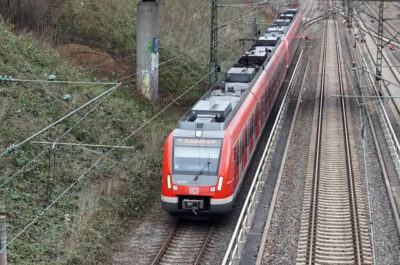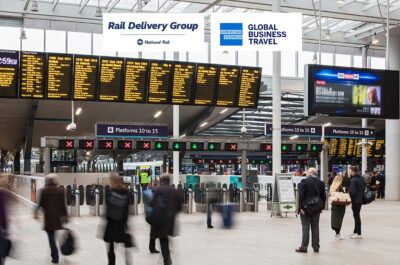Planned removal of state-run monopolies ensures proper use of rail funding.
MOUNTAIN VIEW, CALIF. – The global rail market will offer numerous opportunities for market participants as the result of restructuring and priority rail projects which will drive sales and private investment in the industry. As such, the global market will remain on a steady rail-freight and passenger-volume growth path, even though certain regions such as Africa and Eastern Europe are still running limited rail services.
New analysis from Frost & Sullivan‘s Executive Analysis of the Global Rail Industry 2014 finds:
- Passenger traffic increase: from 3,196.28 billion passenger-kilometers (pkm) in 2013 to 4,739.18 billion pkm in 2020
- Rail freight traffic increase: from 10,168.37 billion ton-kilometers (tkm) in 2013 to 12,332.84 billion tkm in 2020.
The study covers the segments of rolling stock and infrastructure.
“As far as high-speed rail (HSR) services are concerned, Asia-Pacific and Europe are the largest markets in the world, accounting for over 81.60 percent of global investments in this segment,” said Frost & Sullivan Automotive & Transportation Research Analyst Shyam Raman. “With Deutsche Bahn placing orders for 300 HSR rolling stocks to provide its Intercity-Express services, Germany is anticipated to be among the top three markets by 2020. These investments in HSR will have a cascading effect on investments in other segments of the global rail industry.”
However, insufficient funding, low sales volumes in some countries and political instability are constricting the overall growth of the global rail sector. As fixed costs contribute to at least 70 percent of the total cost of rail rolling stock and infrastructure, market participants can bear these costs only in countries where sales are robust and high economies of scale possible.
Therefore, it is not surprising that states across the globe contribute economically to rail construction within their territory. In fact, states tend to monopolize the railway industry, both owning and operating it. This often leads to negligent behavior towards customers and deteriorating infrastructure as well as the creation of unfair barriers for potential market entrants.
“Recognizing that the elimination of state-run monopolies is necessary to make proper use of funding in rail, rapid restructuring is underway globally to boost the competitiveness of the industry,” noted Raman. “Restructuring priorities include the separation of the state, regulator and operating companies as well as the establishment of clear roles for policy makers, regulators, owners of assets and service operators. Eventually, vertically separated rail markets will become the standard globally.”
Vicky is the co-founder of TravelDailyNews Media Network where she is the Editor-in Chief. She is also responsible for the daily operation and the financial policy. She holds a Bachelor's degree in Tourism Business Administration from the Technical University of Athens and a Master in Business Administration (MBA) from the University of Wales.
She has many years of both academic and industrial experience within the travel industry. She has written/edited numerous articles in various tourism magazines.




































































































































































